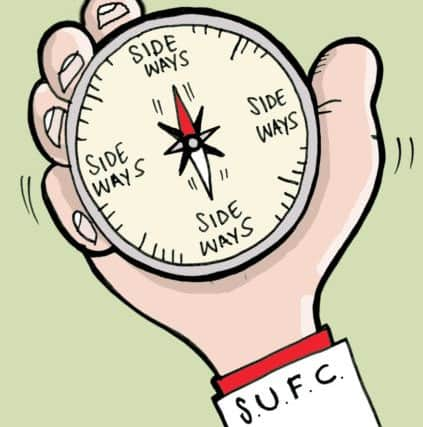Column: Nigel Adkins has failed at Sheffield United...this year at least


Ok, it’s not over yet and you can’t knock a man for refusing to give up.
But if the rest of the season pans out as we expect (and hands up here if it doesn’t), there will be no excuses for falling so far short. Adkins accepted his brief was promotion, nothing less. And when/ if the time comes, I feel supporters will need to hear that again from him as well.


Advertisement
Hide AdAdvertisement
Hide AdBut, as this column has been at pains to point out, the failure is collective.
From the top, too many poor decisions, arguably going all the way back to jettisoning Neil Warnock after relegation from the Premier League in 2007.
From highly paid players, too little drive, consistency and, above all, leadership. From the manager, a set of unconvincing signings, some puzzling analysis and an equally perplexing inability to harness a squad that reached cup semi-finals in the previous two seasons.
Solutions? Well, you can’t “sack the board” (only sing it) and the fans are uncertain who to blame anyway. You can’t fire all the players, only move on those out of contract.


Advertisement
Hide AdAdvertisement
Hide AdAnd, of course, there are always those you want to keep. So we are left with (guess what?) the manager. Back to the default position in football when things go wrong.
First up on that, managers have been sacked for less than Adkins in this situation – as some of his predecessors could tell you. And he may be benefiting from the criticism of that turnover. Indeed, even some of those who question football’s sanity argue it’s become a reasonably normal state that if a manager doesn’t succeed in a year (now a relatively long time!) then his job’s on the line. But should it be?
For balance, check how many “failures” there will be at the end of a season in which more than half the 92 league clubs have already changed their boss. Taking Europe and cups out of the equation, only eleven managers will have won a title or promotion. Twelve will have been relegated. In between, any number of other “failures.”
Look again at League One. Tony Mowbray’s stock at Coventry City can’t be particularly high, either.
Advertisement
Hide AdAdvertisement
Hide AdYes, five years is far, far too long to be stuck in the third tier. What has to be recognised is that Adkins, with a good record, has been manager for just one of those years.
And what the club (rumoured to be riven by internal argument and indecision) MUST do is set a course for next season as soon as the outcome of this one is confirmed. Not linger until after the retained list as it did before very harshly dispensing with Nigel Clough.
As United know to their cost, constant changes are easy to make and hard to make work.
I understand those who see it differently in this instance – and would add that if United are not shaping a promotion challenge under this manager come the Autumn then another sacking would become inevitable, no argument.
Advertisement
Hide AdAdvertisement
Hide AdBut once a line is drawn under this season, a clear focus has to be taken on the mix of experience and youth required to succeed next time. Adkins appears to have been fixing on that for some time.
Logic would seem to suggest he has a clearer view than anyone coming in from outside?